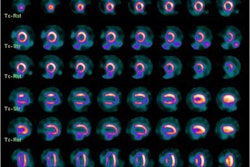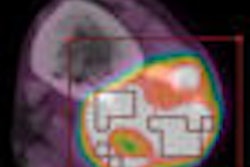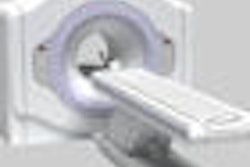ORLANDO - At a time when concerns have been raised about the overuse of medical imaging tests, researchers report that most cardiac nuclear medicine scans are performed for appropriate indications, according to findings presented at the annual meeting of the American College of Cardiology (ACC).
A multicenter study of more than 6,000 patients showed that only 13.4% of SPECT myocardial perfusion imaging (SPECT-MPI) scans were performed for inappropriate indications, said Dr. Robert Hendel, a clinical cardiologist at Midwest Heart Specialists in the Chicago area and lead investigator for the SPECT pilot study.
The researchers developed an easy-to-use system that combines online technology with published appropriate-use criteria, he said. The system was developed by the American College of Cardiology Foundation (ACCF), the American Society of Nuclear Cardiology (ASNC), and insurance provider UnitedHealthcare of Minneapolis.
Six cardiac imaging practices of varying sizes and locations were involved in the study. The researchers prospectively collected and entered point-of-service clinical data on all patients referred for SPECT-MPI into an online database. An algorithm determined whether the study was medically indicated for each patient according to the appropriate-use criteria.
A total of 6,351 patients were involved, and the computer-based algorithm was able to determine test appropriateness in all but 6.6%.
Based on the study criteria, 66% of exams were performed for appropriate indications and 14% were of uncertain appropriateness. The most common use of inappropriate testing was in asymptomatic, low-risk patients -- they accounted for 44.5% of all inappropriate SPECT-MPI exams.
The study documented wide variation of inappropriate testing among the practices studied, with rates ranging from 4% to 22%.
The results also showed that most patients who underwent inappropriate scans were referred by primary care physicians from outside practices. This suggests that self-referral was not necessarily driving inappropriate testing, as has been alleged, Hendel said.
"This pilot demonstrates the feasibility of this approach," he said. "Appropriateness can be measured, test ordering can be evaluated, and physicians can be educated about how to improve their performance."
In fact, one practice reduced inappropriate testing from 22% to 13% after practitioners were given feedback and education, and other practices in the pilot have been able to maintain a consistently low rate of inappropriate use, he said.
Dr. Claudio Schuger, co-chair of the ACC Scientific Session Program Committee and professor of medicine at Wayne State University in Detroit, said, "This is a well-coordinated effort to try to reduce inappropriate usage by means of self-regulation rather than outside regulation."
By Charlene Laino
AuntMinnie.com contributing writer
April 1, 2009
Related Reading
MRI, MDCT err in estimating cardiac functional parameters, February 20, 2009
Hybrid 3D echo/SPECT technique produces better CAD imaging, February 12, 2009
MRI beats PET for myocardial evaluation in patients with impaired LV function, January 9, 2009
Overweight kids have worse cardiac ventricular function, November 13, 2008
PET, SPECT measures of LVEF have superior predictive value, March 13, 2006
Copyright © 2009 AuntMinnie.com



















